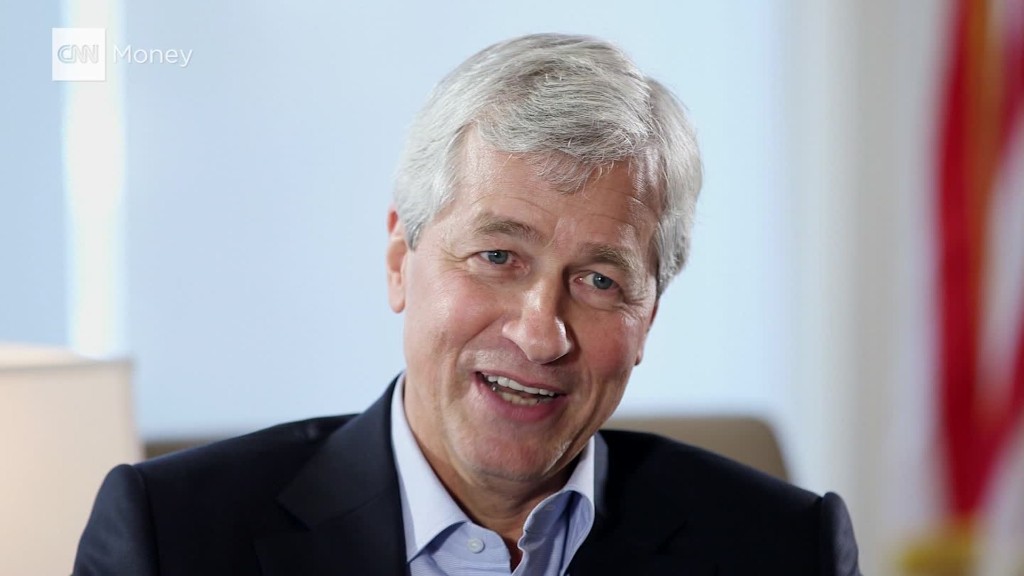
Jamie Dimon wants to be friends with small banks on Main Street.
But the JPMorgan (JPM) chief wasn't exactly extending the olive branch on Wednesday when he responded to criticism from a small bank lobbyist by calling him "a jerk."
Camden Fine, a long time community banker and head of a group that represents small banks, had rejected Dimon's op-ed last month in The Wall Street Journal titled "Large Banks and Small Banks Are Allies, Not Enemies."
Fine argued that Dimon is trying to use small banks as cover in Congress to help get his agenda passed.
"Just because Jamie Dimon says 'let's sing kumbaya' doesn't mean community banks are going to just line-up like a Greek chorus," Fine told Bloomberg.
Speaking on CNBC Wednesday, this was what Dimon had to say about Fine.
"I think the guy who wrote that is a jerk," Dimon said in a phone interview. Dimon urged for an end to "bank on bank violence."
Fine fired back at Dimon in a phone interview with CNNMoney on Wednesday.
Related: Who owns America's debt?
"What is this, junior high school?" said Fine, who is president of the Independent Community Bankers of America. "To be called a jerk by Jamie Dimon -- I take as a badge of honor. It means he has no good argument to our response. So he resorts to name calling, and in my view that is the last refuge of small minds."
The jabs between the two highlight a heated debate in banking about how regulations that emerged out of the financial crisis affect big and small banks. Both must follow many of the same rules even though their risk to the greater economy varies considerably.
Studies by the Federal Reserve and others show that small banks are disproportionately hit by the new regulations, such as higher capital requirements.
Related: The truth about Hillary Clinton's Wall Street speeches
Dimon recognizes that concern.
"I'm completely sympathetic to the community banks saying that 'some of these regulations are killing us' these regulations were meant for large banks," Dimon said Wednesday. "I agree with that. I want them to have some of the burdens reduced on them, whether or not they're reduced on us."
In his op-ed Dimon outlined how JPMorgan partners with small, community banks. He wrote that his bank works with 339 small banks, providing a range of financial services, such as processing payments, distributing cash and helping small banks get access to debt.
Fine contests that the agenda of big banks on key points, such as enforcement of new regulations, differs greatly from small banks.
He says big banks have made "egregious violations" of new regulations but they get away by paying huge fines and senior leadership like Dimon aren't subject to personal penalties.
Related: Jamie Dimon on the global economy
"Community bankers are not only thrown out of their banks, they're prosecuted," Fine said. "The same standard is not applied to the mega banks."
Small banks typically have one or two compliance officers to ensure the bank is keeping up with all the new rules. JPMorgan and the other big banks have armies of compliance officers to stay abreast of all the rules.
On some issues, like payment systems and cybersecurity, big and small banks are in agreement and should work together, Fine says.
However, he maintains that Dimon's key interest is to latch his Wall Street reform goals on the coattails of small banks, which have more good will in Congress. If the two agendas are conflated, that would hurt small banks, Fine says.
"I doubt our agenda would get through [Congress] because it would be a victim of the Wall Street agenda," Fine said.


